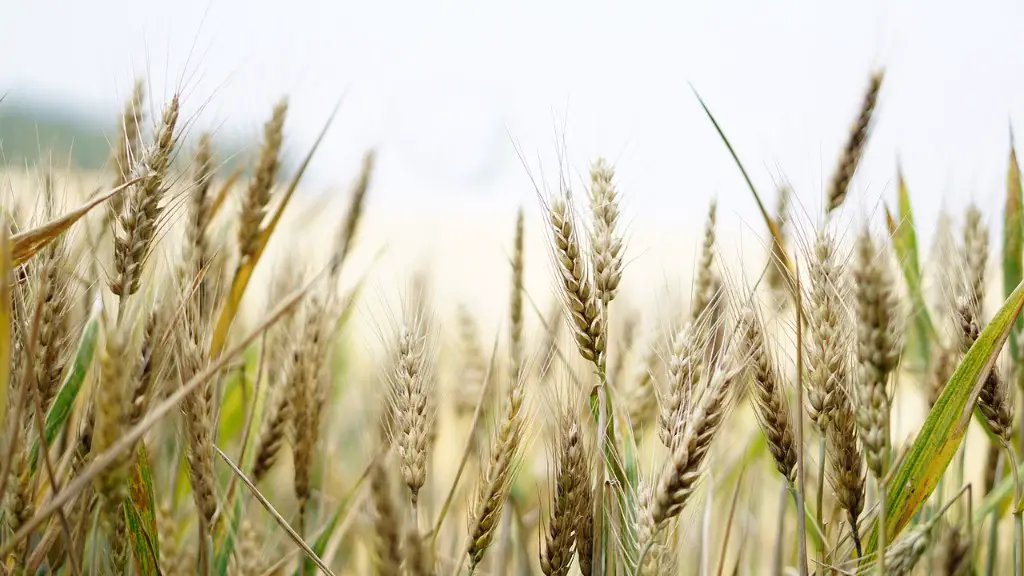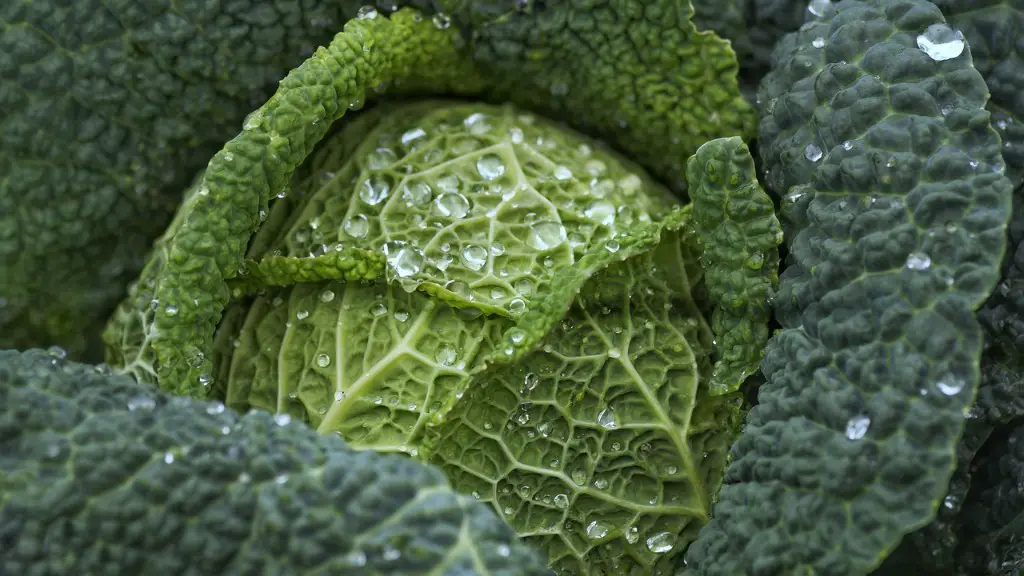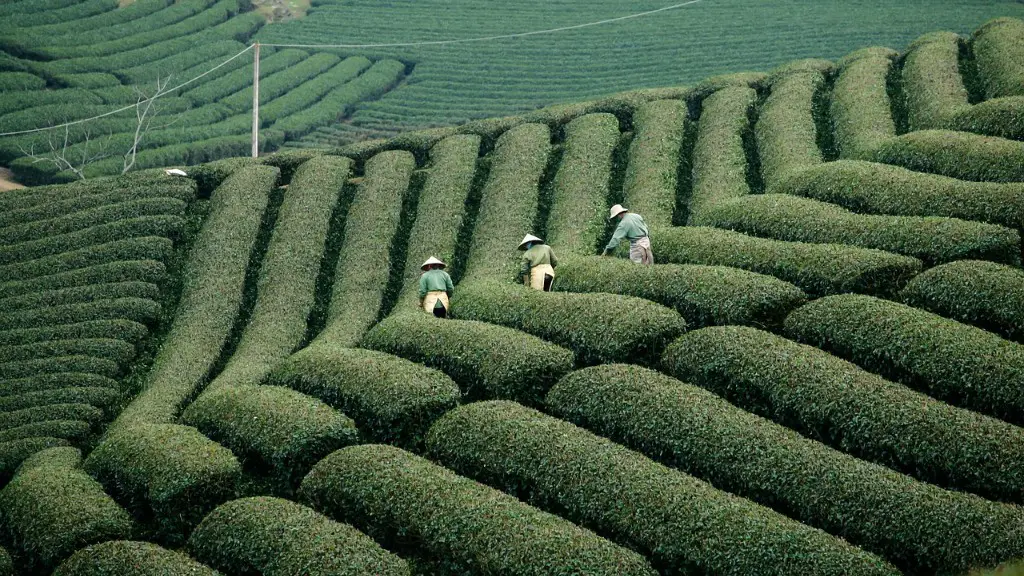Organic matter is essential to agriculture for a number of reasons. It helps improve soil structure, increases water retention, and provides nutrients for plants. It also helps promote microbial activity, which is essential for healthy plant growth. Organic matter is a key component of sustainable agriculture systems.
Organic matter is important to agriculture because it improves the physical, chemical, and biological properties of soils. It helps to increase water and nutrient retention, improve soil structure, and promote the growth of beneficial microorganisms. All of these factors can improve crop yields and help to sustain agricultural productivity over the long term.
What is the importance of organic matter on agriculture?
Organic matter is important for soil health because it improves soil structure, which leads to increased water infiltration and water-holding capacity. It also enhances root growth, which results in better plant health and allows mobile nutrients to reach the roots more easily.
Organic matter is important for the health of ecosystems. It helps to recycle nutrients, improve soil structure, and increase water retention. Organic matter also provides a food source for many organisms, and helps to regulate soil pH levels.
What are three benefits of organic matter
Organic matter is an important component of soil that helps with water retention, nutrient storage, and soil structure. It is often misunderstood, however, and its importance is often underestimated. Organic matter is essential for healthy soil and should be taken into consideration when managing soil resources.
Organic matter is essential for healthy soils. It helps soils hold more air and water, which leads to higher yields. It also provides a steady release of nutrients to plants, helps to inhibit erosion, and hosts a robust population of beneficial microorganisms.
Why are the 5 reasons that organic matter is important in soil?
Organic matter is important for soil health and fertility. It helps improve soil structure, water-holding capacity, and nutrient mineralization. It also increases biological activity and water and air infiltration rates. Adding organic matter to the soil can help improve plant growth and yield.
Organic agriculture is more sustainable than conventional agriculture because it reduces the use of non-renewable energy sources. Agrochemicals, like fertilizers and pesticides, are made from fossil fuels, which contribute to greenhouse gas emissions and global warming. By reducing the need for these products, organic agriculture helps to mitigate the greenhouse effect. Additionally, organic agriculture can help to sequester carbon in the soil, which further reduces greenhouse gas emissions.
What is organic matter and its importance?
Organic matter is important for healthy soil because it provides nutrients and habitat for soil organisms, and improves the water holding capacity of the soil. By binding soil particles into aggregates, organic matter also increases the stability of the soil structure.
Organic matter is anything that contains carbon compounds that were formed by living organisms. It covers a wide range of things like lawn clippings, leaves, stems, branches, moss, algae, lichens any parts of animals, manure, droppings, sewage sludge, sawdust, insects, earthworms and microbes.
Organic matter is important for the health of our ecosystems. It provides a food source for organisms, helps to regulate soil temperature, improves water retention and soil aeration, and provides essential nutrients for plants.
Organic matter also plays an important role in climate change mitigation. It helps to sequester carbon in the soil, which helps to reduce atmospheric greenhouse gas levels.
What organic matter is good for soil
The best organic amendments for garden soils are those that are high in essential nutrients and minerals. Wood by-products such as sawdust and bark mulch, rotted manure, grass or wheat straw and compost all contain these vital nutrients. Inorganic amendments, such as pumice, perlite, vermiculite and sand, also improve soil drainage and aeration.
Soil organic matter can have a significant impact on soil properties. Perhaps the most important property influenced by organic matter is soil structure. Well-structured soils are more resistant to compaction and have greater porosity, which can improve drainage and aeration. Soil organic matter can also improve the moisture holding capacity of soils, as well as the diversity and activity of soil organisms. Both beneficial and harmful soil organisms can be affected by organic matter, and this can in turn impact nutrient availability. Consequently, soil organic matter can have a significant impact on crop production.
How does organic farming improve soil quality?
Organic agriculture is a form of agriculture that sustains healthy soils by improving water infiltration and retention capacity through high levels of organic matter and permanent soil cover, such as cover crops or mulch. This type of agriculture significantly reduces the amount of water needed for irrigation, and is thus more sustainable than conventional agriculture.
Organic matter is essential for the movement of nutrients in the environment and plays an important role in water retention. Organic matter is a key component of the water cycle and is responsible for the majority of the water that is stored on the surface of the planet.
Can plants grow without organic matter
Microorganisms are essential for the health of crops and soils. They break down plant residue and detritus, and in the process release nutrients such as nitrogen, phosphorus, potassium, etc in plant soluble form. Humus, or soil organic matter, is necessary for soil structure, tilth, and cation exchange capacity (CEC). Without organic matter you wouldn’t have crops.
Organic matter is important for soil health because it improves tilth while preventing soil compaction and crusting. Soils low in organic matter often crust or seal over after a heavy rain, which prevents water and oxygen infiltration to the root system of growing vegetables. Adding organic matter to the soil can help improve drainage and aeration, which is essential for plant growth.
What uses organic matter as a source of food?
Soil organisms play an important role in the soil ecosystem by breaking down organic matter and releasing nutrients that plants can use. This process, called mineralization, helps to cycle nutrients and keep the soil healthy.
Organic farming is more sustainable than traditional farming because it does not use pesticides and results in better soil quality and reduced pollution from fertilizer or pesticide run-off. Organic farming also enhances biodiversity by growing a wider variety of plants.
What is organic farming role in agriculture’s future
Organic farming is a farming practice that relies on organic materials and methods to produce crops and livestock. This type of farming is considered more sustainable than conventional farming practices, which often involve the use of chemical fertilizers and pesticides. Organic farming has become an essential tool when moving towards the future era to decrease the adverse effect of burning crops and global warming.
Organic farming is a type of agriculture that relies on natural processes, rather than the use of synthetic inputs, to enhance crop production. The objectives of organic farming, as set forth by the Commission on Organic Farming, are to use energy and natural resources responsibly, maintain biodiversity, protect animal welfare, and conserve the regional ecological balance.
Final Words
Organic matter is important to agriculture for a number of reasons. First, it helps to improve soil structure and porosity, which in turn helps to increase water and nutrient retention and improve drainage. Additionally, organic matter increases the soil’s ability to filter out pollutants and to store carbon, helping to improve both soil and water quality. Finally, organic matter is a key component of many agricultural systems and processes, such as composting, that help to sustainably manage crop production.
Organic matter is important to agriculture because it helps improve soil fertility and tilth, and it also helps store water and nutrients in the soil. Organically managed soils also tend to have higher levels of beneficial microorganisms, which can help to improve plant growth and soil health.





